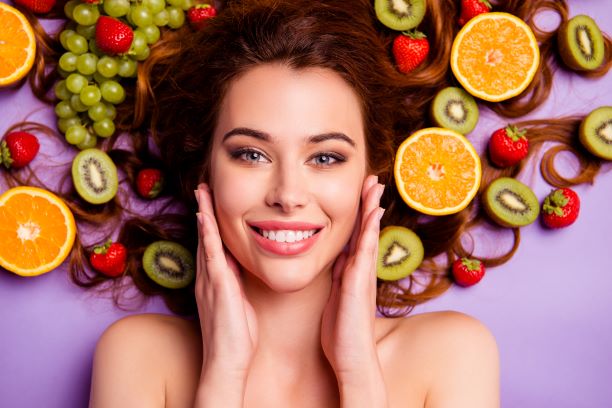
The biggest organ in the body, our skin also acts as a window into our general health and wellbeing. Many people have spent a lot of money on skincare products such as betnovate cream in an attempt to achieve and keep beautiful, glowing skin, yet our food may be much more important in determining our skin’s health.
The quality and look of our skin may be significantly influenced by the foods we consume. In order to get that desired radiant complexion, we will talk about what foods to eat and what not to consume in this article, which will also examine the critical function nutrition plays in developing beautiful skin.
What to Eat
Water Is Vital The simplest yet most important ingredient for keeping good skin is water. Sufficient hydration helps remove toxins from the skin and maintains it hydrated. Try to consume eight glasses of water or more each day, and think about eating foods high in water content, such as oranges, cucumbers, and watermelon.
Omega-3 Fatty Acids
These good fats are great for keeping skin healthy and may be found in walnuts and fatty seafood like salmon. The lipid barrier of the skin, which keeps it moisturized and shields it from the elements, is maintained in part by omega-3 fatty acids.
Antioxidant Rich Foods
Foods high in antioxidants, including green tea, berries, and dark leafy greens, may help shield the skin from the oxidative damage that free radicals cause. By counteracting these damaging chemicals, antioxidants lessen the appearance of aging and support a youthful complexion.
Vitamin C
The synthesis of collagen, which gives your skin its suppleness and elasticity, depends on vitamin C. Foods high in this essential vitamin include bell peppers, strawberries, and citrus fruits.
Vitamin E
Vitamin E helps shield your skin from UV radiation and other environmental harm. It may be found in nuts, seeds, and vegetable oils.
Beta Carotene
The body converts foods high in beta-carotene, such as sweet potatoes, carrots, and pumpkin, into vitamin A, which is necessary for healthy skin. Skin tissue maintenance and healing are aided by vitamin A.
Protein
Consuming a diet high in lean protein sources, such as fish, chicken, and tofu, gives the body the amino acids needed to produce collagen and elastin, which are vital for healthy, firm skin.
Probiotics
Skin health and gut health are intimately related. Eating foods high in probiotics, such as kefir, sauerkraut, and yogurt, may support the maintenance of a healthy gut flora, which lowers inflammation and promotes clean skin.
Zinc
Because it aids in the growth and repair of skin cells, zinc is essential for the health of the skin. Whole grains, nuts, and seeds are good sources of zinc.
Collagen-Boosting Foods
Since collagen is necessary for preserving skin’s suppleness and avoiding wrinkles, include foods that promote collagen synthesis, such as bone broth.
What to Avoid
Sugar
Consuming too much sugar may cause glycation, which weakens the skin’s collagen and elastin and makes it droop and wrinkle. Reduce the amount of sugar-filled meals and drinks you consume.
Processed meals
Frequently laden with unhealthful fats, additives, and preservatives, processed meals may exacerbate skin conditions and inflammation. When possible, use natural, whole foods.
Dairy
For some people, dairy products may cause inflammation, which can result in acne and other skin issues. If you think dairy is affecting your skin, think about cutting it out of your diet.
Saturated and trans fats
These bad fats, which are included in fried meals and a lot of processed snacks, may block pores and cause inflammation. Opt for more nutritious fat sources such as olive oil and avocados.
A surplus of alcohol may cause the skin to become dehydrated and widen blood vessels, which can result in puffiness and redness. To counteract alcohol’s drying effects, drink water and limit your alcohol intake.
Caffeine
While most individuals can tolerate moderate amounts of caffeine, too much of it may dry up the skin. Make careful to balance your intake of tea or coffee with enough water.
Spicy meals
For some people, spicy meals may aggravate rosacea and other skin disorders. Consider how your body reacts to spicy meals and modify your intake appropriately.
High-Glycemic Foods
Items high in glycemic index, such as sugary cereals and white bread, may raise blood sugar levels and cause outbreaks of acne. Instead, choose low-glycemic meals and healthy grains.
Oversalted Food
Consuming too much salt may cause puffiness and water retention. To counteract its effects, you should eat foods high in potassium, such as bananas, and restrict your consumption of salt.
Caffeinated and Sugary Drinks
Soft drinks and too Caffeinated or Sugary Drinks may cause serious damage to your skin. Try water or herbal teas instead, since they are lower in calories and may cause a number of skin problems.
In summary, what you eat on your plate determines whether you have beautiful, healthy skin. Your complexion may be greatly improved by eating a balanced diet low in elements that damage the skin and high in vital nutrients. Keep in mind that every person will respond differently to different foods, so it’s important to listen to your body and modify your diet as necessary.
For the greatest results in obtaining and keeping beautiful skin, combine a healthy diet with a proper skincare regimen, enough sleep, and stress management. You can bring out the inherent beauty and brightness of your skin by nurturing it from the inside out. Your skin is a mirror of your inner wellness.


